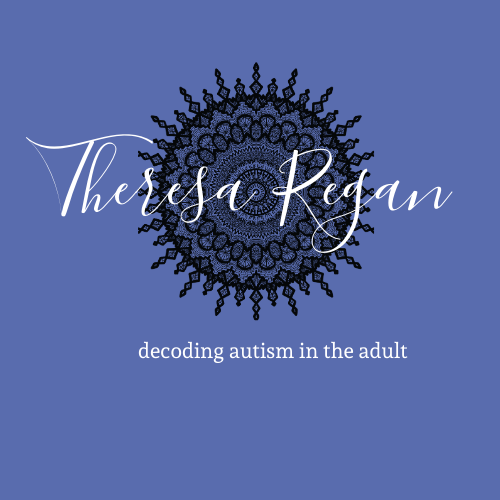Shifting Autistic Characteristics Across The Lifespan: Foundational Knowledge
Description
Join Dr. Regan for the first episode in her new series about how autistic characteristics may shift across the lifespan. This episode focuses on why this happens (i.e., changes in the individual and the environment). Stay tuned for the next episodes in the series to hear about changes during adolescence, hormonal shifts in women, and aging (50's and beyond).
Dr. Regan's Resources
New Course for Clinicians - Interventions in Autism: Helping Clients Stay Centered, Connect with Others, and Engage in Life
New Course for Clinicians: ASD Differential Diagnoses and Associated Characteristics
Book: Understanding Autism in Adults and Aging Adults, 2nd ed
Audiobook
Book: Understanding Autistic Behaviors
Autism in the Adult website homepage
Website Resources for Clinicians
Read the Episode Transcript:
1
00:00:05,840 --> 00:00:07,080
Hi everyone,
2
00:00:07,090 --> 00:00:14,860
this is Dr Theresa Regan and thank you for joining me for a new episode of autism in the adult podcast.
3
00:00:14,870 --> 00:00:29,450
We are starting a new series today and it is going to focus on how the characteristics of autism may shift in their expression or in the experience of the individual across the lifespan.
4
00:00:30,340 --> 00:00:35,610
I'm happy to share my experiences about this as a neuropsychologist,
5
00:00:36,040 --> 00:00:41,260
a certified autism specialist and the mother of a teen on the spectrum.
6
00:00:42,940 --> 00:00:59,850
We are starting this new series and I plan to have four episodes that are outlining some of these shifts that we can see in what autism feels like and what it looks like across the lifespan of the individual.
7
00:01:00,940 --> 00:01:14,180
The reason that I want to focus on this topic is that it does feel confusing to many people as to why would there be shifts? if I'm seeing something that changes over time,
8
00:01:14,180 --> 00:01:26,360
doesn't it mean that something new has happened or that it's not related to an underlying kind of neurologic framework that is part of the foundation of the brain itself.
9
00:01:27,740 --> 00:01:28,970
And indeed,
10
00:01:28,980 --> 00:01:30,890
in the diagnostic manual,
11
00:01:30,890 --> 00:02:01,470
many clinicians really focused on an important part of the criteria which is that the characteristics have to be present across multiple contexts in order to make this diagnosis -- and that is to safeguard from having a diagnosis established when in fact there's just something about the environment or the combination of the environment and the person that triggers similar characteristics.
12
00:02:01,470 --> 00:02:01,980
So,
13
00:02:01,990 --> 00:02:03,710
for example,
14
00:02:03,720 --> 00:02:12,950
if somebody is really triggered and has flashbacks in a certain environment related to trauma,
15
00:02:13,740 --> 00:02:21,760
we don't want to call that autism and perhaps we can tell the difference because in other setting,
16
00:02:21,770 --> 00:02:29,360
they really seem to feel centered and to interact easily with others and not show the same pattern.
17
00:02:29,370 --> 00:02:38,350
Or perhaps someone just has a real struggle connecting with a certain person because of past experiences.
18
00:02:38,350 --> 00:02:46,160
But their ability to connect across environments with a large range of people is where we would expect it to be.
19
00:02:47,740 --> 00:02:48,430
So,
20
00:02:48,430 --> 00:02:50,470
there is a reason that,
21
00:02:50,480 --> 00:02:51,200
you know,
22
00:02:51,210 --> 00:03:00,360
the emphasis is placed on the fact that this is something seen across time and across context.
23
00:03:01,240 --> 00:03:03,030
But at the same time,
24
00:03:03,340 --> 00:03:14,460
I think we need to understand that there can be shifts in what the characteristics feel like and how they are expressed or what they look like to other people.
25
00:03:15,740 --> 00:03:21,990
So this first episode is going to be about some foundationa
More Episodes
Join Dr. Regan for the fifth episode of the Lifespan of a Household series. Today's episode focuses on topics important to autistic individuals who are parenting young children.
Autism in the Adult website
Resources for professionals
Video Visits
Video Courses
Published 10/19/24
Join Dr. Regan for the 4th episode in the Lifespan of a Household series. Today's episode focuses on topics important to the autistic individual who is preparing for parenting.
Autism in the Adult website
Resources for professionals
Video Visits
Video Courses
Published 10/06/24
Published 10/06/24


